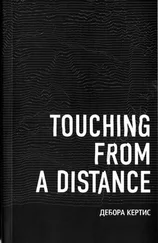There were no plants, no fuel, no water. He did not know where he was. He did not know if he was sane. The only choice was to turn around, go back into the grassland, and then, no matter what, head straight east.
A bee. It circled the horse’s ears, buzzed behind Håkan’s neck, and then escorted them for a while, cautiously inspecting the saddlebags and the burro’s load. Håkan’s first thought was that, at last, spring had arrived. Then, immediately after, he realized that he had not seen a bee in years. In fact, this was the first one to cross his path since he had left Sweden. So far, the American wilderness, with its lavish range of species thriving in extremely divergent conditions, had been unable to produce a bee. He had experienced every season in different climates. And these prairies were the same prairies he had been riding through for ages—at the very least, since first meeting the emigrants on the trail. Why, then, now, suddenly, a bee? Farms. That was the only explanation he could come up with. In all this time, since landing in San Francisco, he had never seen anyone working the land. No plowing, sowing, or reaping; no fences, haystacks, or mills. No beehives. So there had to be farms close by. Since everything else, beginning with the terrain and the elements, had remained constant, this had to be the explanation for the unexpected appearance of the honeybee.
He was still concerned about other people, but he hoped that after all the time that had passed since the killings, he would have been forgotten. Sometimes, when his spirits were at their highest, he even trusted that he was far enough from the scene for anyone to even know about what had happened. The news could never have reached these parts, so removed from the trail. And even if reports of this unlikely possibility proved to be the case—even if reports of his shameful deeds had traveled through the seasons and through the plains—he believed that he had become stronger and that he was ready to face anyone with the truth. Whenever these arguments failed, he told himself that he was either mad or lost, trapped in the great grasslands between the trail and the desert, and that if he ever wanted to see Linus again, sooner or later he would have to turn east, and should he not meet other men along the way, he would surely have to confront a multitude in the great city of New York.
For the moment, however, even if the bee—and the many others that followed it—was a herald of civilization, there were neither farms nor villages in sight, and Håkan traveled forth undisturbed. Moreover, despite their threatening implications, the bees gave him great joy. A few days after spotting his first specimen, he saw the air thickened by a swarm overflying a fallen log. The bees thronged over a hollow in the trunk, which turned out to hold a honeycomb. With great care, but unable to avoid a few stings, Håkan reached for the wild honey. His forearms burned with domed yellow blisters as he took a flake to his mouth. He barely recognized the flavor as honey. It had less to do with taste than with touch, smell, and sight. The waxy, silken paste went straight to his nose, where he saw a thousand flowers.
When he shed his fur coat, Håkan also took off the horse’s and the burro’s tarpaulin boots. The hardships of last winter had become a memory—a series of vivid and yet partial recollections. He knew that he had been cold but could not invoke the cold in his bones; he knew that it had been windy but could not relive the wind slicing through his flesh. Likewise, he knew that he had lived in constant fear of running into other people and remembered how exhausted he was from his never-ending precautions but found it impossible to summon the fear itself. These things—the numbing cold, the gritty gales grounding into the skin, the relentless and inarticulate dread—could be brought back as words or pictures, but not as experiences. And it was this impossibility that made him believe that now, when spring had set in, he was prepared to meet his fellow creatures.
Having traveled north until the last red vestiges of desert had vanished from the greening plains, Håkan made an abrupt turn east. Each time he consulted the silver compass, he caught a partial glimpse of his face reflected on the clouded lid, which his fingertips had darkened over the time. He always looked at his teeth first. With their untainted whiteness, they were the only part of his body that reminded him of who he used to be. As soon as he shut his mouth, those relics vanished under the yellow and orange disorder of his beard. He was always stunned to find that brutal thing on his face. His eyes had shrunk from so much squinting and were barely visible at the bottom of the depressions between his protruding cheekbones and his prematurely wrinkled forehead. His features were only revealed to him one at a time as he scanned his face with the dim compass lid. If he pulled it back to see the whole, it all vanished. He wondered what people would make of that face. What had the wilderness done to it? Were his murders drawn on its surface? Although there was still no sign of settlers or travelers, Håkan foresaw that he would learn the answer to these questions soon enough.
The sun had just risen above its own red glow when Håkan spotted four orderly plumes of smoke separated from each other by the same distance. He would have been unable to say why, but there was something in the density, texture, and color of the smoke that spoke to him of hearths and hobs. Those were comfortable fires, not urgent ones. He paused, indecisive, and then resumed his march. As he rode toward the narrow, upright clouds, an orchard came into view. Beyond the trees, a church steeple took shape. The beat of a hammer, the first man-made sound he had heard in ages, echoed above him, as if a remote hand were nailing something into the sky. He was unsure whether the smell of bread, apple blossoms, dogs, and jam was in the air or in his mind. Did he hear a woman laughing? Feeling he would look less threatening on foot, he dismounted and walked his horse toward the village. The treetops swayed yes and no. He could make out some of the houses. They were painted Swedish red.
Håkan stopped, sensing he had reached an edge beyond which he would be seen. White linen waved on a clothesline. One of his scabbed, scarred hands scratched the other. Behind the red walls, there were beds—beds that would be made with the sheets drying out on the clothesline. He had not been in a room in a long time. Maybe some of the sheets were tablecloths. Behind the red walls, there were also tables. There were also chairs. There could be a sofa. There was milk in jugs, and there was crockery. There could be someone sweeping the floor. There could be children in bed. How would he speak? What would his story be? A wretched man out on the plains by himself. How would he account for his condition? Could he lie? He looked at his bandaged moccasins. The thought of conversation—and knowing he would be unable to carry any form of deception through—made his heart drum in his ears and the blood crawl around his face.
Something moved in the orchard. A second hammer joined in. The sun had whitened and soured. Håkan got on his horse, turned around, and, for the very first time, set out at a gallop.
His eyes got watery from the fast, dry wind. He discovered that he was not a good rider, but the fear of falling off the horse was nothing compared to the terrors he was fleeing. The horse seemed to have remembered something about himself and was happy about it.
The plains took them back in.
When the horse decided to stop, it was Håkan who was out of breath. Having always been told that horses ought to be spared, he had never indulged in anything beyond a canter. The feeling of speed, which he had never experienced in his life, had not stopped with the gallop. Panting, he still sensed the horizontal plunge. He may have laughed. Little by little, as his breath evened out, he understood that the world had come to a still, and finally his woes caught up with him. He would never be able to face other people. This was clear to him now that he stood, once again, by himself, in the void. But then how would he pass through all the towns that surely lay between him and New York? And how would he ever make his way through the throngs of people that crowded that gigantic city to find Linus? And even if he did—even if he somehow managed to handle every one of these hundreds or thousands or millions of encounters—he would still have to face his brother.
Читать дальше












